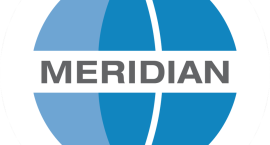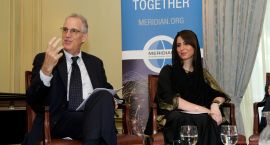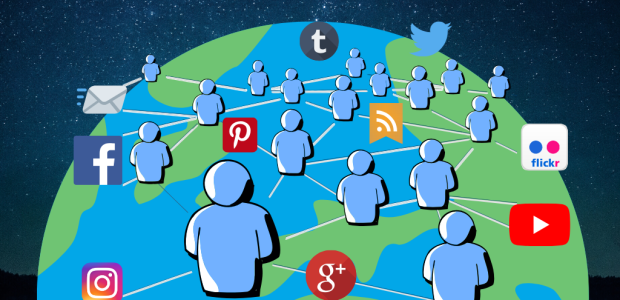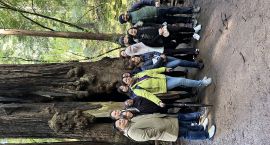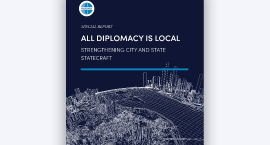This blog post was contributed by Shaila Manyam who is the Senior Vice-President and leads international public affairs at Burson Cohn & Wolfe (BCW) and is a member of the Global Leadership Council at the Meridian International Center.
The spread of COVID-19 upended how governments and leaders convene, communicate and carry out their fundamental responsibilities towards citizens, and as a result social media has grown in importance as a critical channel. Around the world, people are flocking to social media to learn critical information about public health, policy changes and safety – but also to seek emotional support, reassurance and build community. As isolation becomes more common through curfews, social distancing, travel bans and telework our need for connections and information has tremendously increased. Social media has bridged individuals, families, world leaders and constituents, mobilizing social capital. From virtual G20 and World Bank sessions to critical updates and even Facebook advertising (which is being used in unprecedented numbers and ways to place and convey critical public affairs information and campaigns), governments and leaders have leveraged digital diplomacy in a very short timeframe.
BCW has been studying the uptake, presence and usage of social media – Facebook, Twitter, and Instagram – by world leaders and international organizations since 2012, including annually ranking the most popular world leaders. In just eight years we have seen exponential growth in the number of world leaders who began utilizing social media to leverage reach and tell stories, shape narratives, connect with their constituents and convey information. Twiplomacy, or digital diplomacy, is no longer a novelty or a means of only reaching some of a population. Leaders are now expected to have some form of social media presence and are judged in conversation and at the ballot box by their constituents on its successes and failures.
With this year’s Facebook study, we were also able to gauge the initial impact that COVID-19 has had on social media, digital diplomacy and constituent engagement. In addition to the influence of global events, we highlighted how world leaders and governments can leverage newer options on Facebook to connect with key audiences:
- Social media presence is more than a communication channel. It has become a statement about freedom of expression and media, technological capability, national security, global engagement and openness, and other critical milestones for politics, business, tourism and human rights. Social media likes, follows, retweets and other metrics have also become part of the measurement leaders and governments use to gauge success overall. Due to its instant sharing capabilities and informal tone, it gives constituents more of an impression that they are hearing the unvarnished thoughts of their leadership. At the same time, it allows leaders and governments to carefully shape their message and images through both visual, audial and written means.
- Reach and engagement (i.e., likes and follows) do not always correlate – and reach does not always translate into effectiveness. In an era where bespoke communications is critical, sometimes reaching a smaller audience of the right people is more effective and allows dialogue vs. broadcasting. Both clearly have a place in strategic public affairs communications but being able to engage on a regular basis with target groups builds trust, creates a critical loop for feedback and strengthens the echo chamber for leaders through third-party advocacy. Our annual rankings of world leaders on Facebook, Twitter and Instagram look at likes, but for the first time ever, we are also looking at true reach as measured by Klear.com.
- Tools like Facebook Groups, Facebook Live and Events allow leaders and governments to further nurture and connect with target audiences. If the goal, for example, is to manage audiences more closely (during an election to reach or create a community to connect with students/scholarship alumni, expatriates abroad or other focused groups), Facebook Groups offered a turnkey solution, particularly during the COVID-19 outbreak to quickly gather and disseminate information.
- Maintenance, specifically consistent monitoring of comments and feedback, is critical in building external confidence and credibility. With tools like Facebook polls, document sharing and other means to pull people together, Facebook Groups for one can quickly create the dialogue that ministries and leaders seek and build trust even in moments of crisis, provided admins are reasonable and vigilant in enforcing community standards, making sure they are being responsive and that information is updated. These are all critical trust points for keeping people coming back to Facebook Groups and other tools.
- Despite advertising revenues declining with COVID-19 and the global economic slowdown, Facebook ads are also a critical means to disseminate information and can be selectively targeted to reach the right audiences. Some leaders have used them ahead of elections, but advertising took on new meaning with the pandemic when the ability to address gatherings was essentially gone. While Facebook and other platforms have come under fire for having misleading ads and not actively catching and correcting (if at all), Facebook has also donated ad space to international healthcare organizations like the World Health Organization, UNICEF and others to combat misinformation and works with individual countries like Germany on public awareness campaign in multiple languages to allow for maximum reach among diverse populations. COVID-19 and other significant events like Brexit have also highlighted issues with disinformation spread and political ad campaigns on Facebook, leading CEO Mark Zuckerberg to announce he was taking a more active role going forward.
As leaders around the world head into critical elections seasons while continuing to navigate issues like the COVID-19 pandemic, the economy and racism, traditional means of communications that draw on large rallies, live audiences and personal contact will become increasingly restricted and difficult to deploy. Understanding the role, growth and implementation of world leaders on media like Facebook and watching how it will evolve over the next year will be a critical measure and approach to engaging with citizens – and listening to their concerns. More information, including world leader rankings and insights on Facebook usage, can be found here: www.twiplomacy.com









